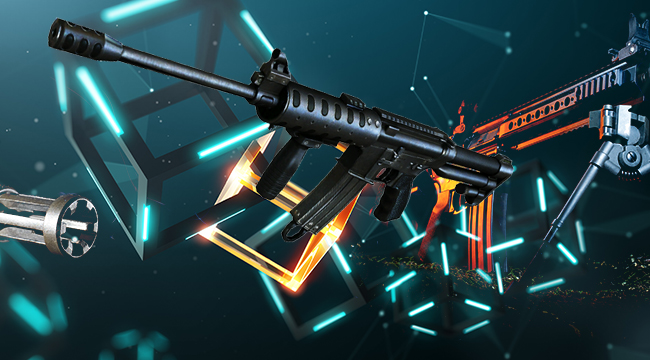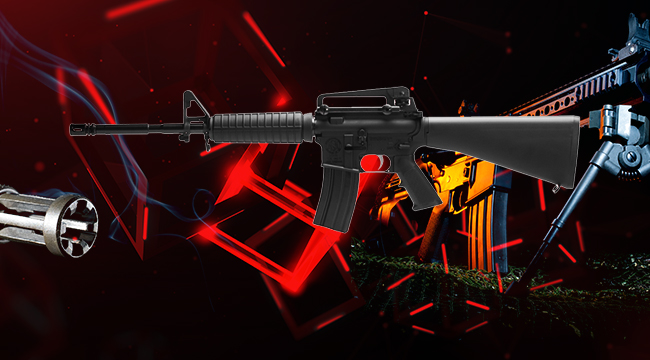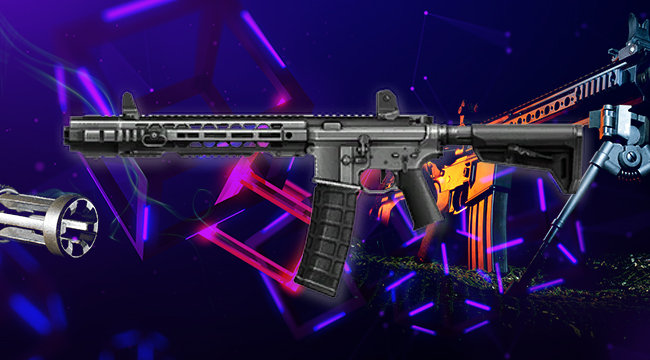
One of the fundamental problems with America’s gun culture is that anybody, even people banned from acquiring weapons, can easily buy guns. While, in theory, there are checks on the system, that clearly hasn’t stopped mass shooters from assembling their arsenals. Guns are sold in private sales with no checks, over Facebook, and can be bought with less identification than you need to buy liquor, in some states.
There has to be a better way, beyond corporations voluntarily tightening their rules (which isn’t going to happen). Now, politicians believe they’ve found one, and some are trying to ban it before the public catches on. The idea: Blockchain for firearms. A decentralized, public ledger that tells us exactly where each gun was sold and all of the data surrounding it.
But will this bold concept work or be outlawed by pro-gun lawmakers? And if it does become big, can it really help solve our nation’s gun problem?
What Is Blockchain?
“Blockchain” has replaced “disrupt” as the buzzword for tech circles. Iced tea companies and Hooters franchisees are bringing it up, after all. But at its root, blockchain is simple: It’s an open, public ledger of all transactions on a network, where a copy is stored with every “node” using that network.
Think of blockchain this way: Pull out a dollar from your wallet and find the serial number. Now imagine that, from the moment that dollar was printed, that serial number was used to automatically track its location, and anybody who accepted dollars as currency could pull up a website and punch in the serial number to see exactly where that dollar is supposed to be. A merchant, for example, could scan a dollar in San Francisco and discover that it’s supposed to be in Des Moines, and refuse the transaction. That is, more or less, how blockchain works: Every cryptocurrency has a network of nodes, that is, people mining coins, and everybody gets a copy and donates processor cycles to maintaining the ledger. If the ledgers don’t match exactly, you can’t engage with the network.
If this sounds like something that would be rather useful to anybody who wants to know not just where something is, but where it went, well… you’re not alone. Companies are proposing blockchains for used cars, shipping companies are looking to blockchain to cut down on paperwork and shut down smuggling, and blockchain is being used to turn contracts into software programs, making them more enforceable. So applying it to a problem like “Where did all these guns come from (and where have they gone)?” seems like a no-brainer. The problem is the federal government has spent years making using a computer to find a gun almost impossible.
The Relationship Between The Feds And Gun Tracking

When a police officer recovers a gun, and only knows who sold it, at some point they’ll make a phone call to Martinsburg, West Virginia, where the Bureau of Alcohol, Tobacco, and Firearms, ATF for short, keeps nearly 300 million records. But they won’t get the information they need from a phone call. Instead, ATF researchers will find the dealer’s specific index number and then page through gun after gun after gun until they find the one you’re looking for. And that’s if you’re lucky.
The federal government makes it incredibly hard to find a gun, in all sorts of ways. The ATF is underfunded and understaffed. Critics argue that this is by deliberate design. Until recently, gun dealers weren’t required to keep computerized sales records, meaning ATF agents have to burrow through paper records, a process that can take weeks. All this adds up to bizarre situations like the Government Accountability Office writing a damning report about the ATF doing its job too well.
Mother Jones details just how hamstrung the ATF is, by looking at the law that pays for it:
The success of ATF’s critics in reining in its authority is nowhere more evident than in the bureau’s appropriation statute, which is two pages long, devotes 11 lines to describing the agency’s budget and the remaining 76 lines to proscriptions on its powers. Many of these “riders,” as they’re known, go to the agency’s most basic investigative functions. Two of the riders effectively ban consolidation and computerization of records. One limits access and use of crime gun trace data, while another undermines the credibility of whatever trace data are released. One rider overturns ATF efforts to ban the import of large-capacity shotguns, which the agency found had no “sporting purposes.” Another overturned an ATF regulation to limit the import of dangerous weapons under a law originally designed to protect collectors of “curios and relics.”
Therein lies the first problem: There are a lot of elected officials opposed to even the most basic computerized records. And as for private sales, which can be done on Facebook, only four states even require private sellers to keep any sort of record. So to say that the idea of a blockchain for guns makes lawmakers anxious — especially in pro-gun states — is a massive understatement. In fact, Missouri and Arizona lawmakers already want to ban even the whiff of blockchain for guns, even though these systems are only theoretical.
But, times change. Legislators retire. Laws are rewritten. And gun owners, or at least their households, overwhelmingly support gun control laws. So, let’s set that aside, and assume federal law catches up to modern technology. There are still a few logistical questions.
What Would ‘Blockchain For Guns’ Look Like?

Building a blockchain for firearms is a rather large infrastructure issue, just in terms of building the network. Do we issue every gun owner a computer they have to keep in their houses? Do we stick little tags on every gun? Do we limit it to federally licensed dealers, and require all private sales to be run via a dealer? Who pays for all this? What are the legal consequences for not participating?
Perhaps the owners could be on the blockchain, instead, where to buy any gun, you need a license and to add that gun to the blockchain under your own name and license. But that raises its own questions of privacy and access. If you need a federally issued gun license, and every gun you buy is put on the blockchain as part of that license, it’s fair for gun owners to ask who gets to take a look at these records and why.
There’s also the question of getting every single gun in America on the blockchain, which would really be the purpose of all this. There are 300 million guns in America, and they would all have to be added. Or, perhaps not! Do collector’s pieces count? Historical weapons? Replicas of older weapons? Guns that no longer function? Parts?
And then there’s the biggest problem: This will help law enforcement, certainly, but the simple truth is if a gun is stolen, borrowed from a friend, or otherwise taken away from the owner, no records system will stop it. There’s no certain proof that blockchain would decrease casualties. Mass shooters, in particular, often seem to intend to get caught (or killed). So one also has to ask, if we’re going to go to all this time and expense, why not simply modernize the gun information we already have, first, and get them up to the same level of quality as, say, your local library?
Just being able to search a firearm by name of owner, serial number, or other data would vastly speed up the process of checking the current gun registry.
It’s not that the idea of a blockchain for guns is a bad one. There’s a blockchain for weed, after all. And it’s easy to foresee political support, as well as opposition. But right now it’s just the kernel of an idea, and there are other, simpler ideas that might take priority. There are a lot of ways in which we monitor guns can be improved, and blockchain may (eventually) be a part of that system. But for the near f,uture it’ll only be one piece of a much more complicated machine to keep guns out of the hands of the irresponsible and criminal. And that’s a process which we should start now, without waiting for the tech to be ready (or get banned by lawmakers).
